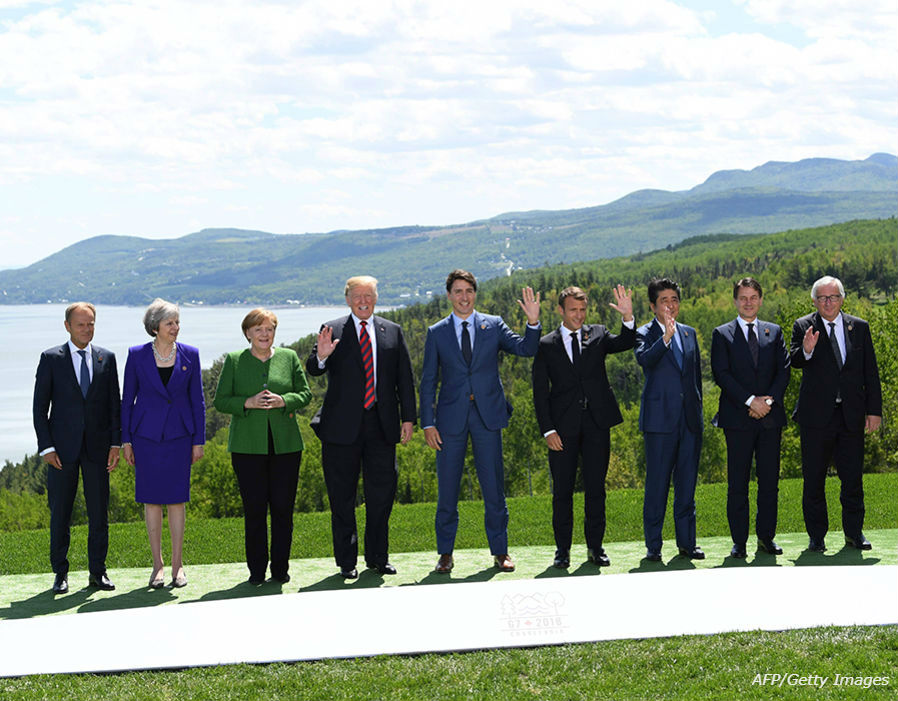Québec City, Canada – Canadian Prime Minister Justin Trudeau announced the closure of what he described as “a successful G7 Summit with ambitious objectives” on the environmental front, including a status quo commitment on climate change and a G7 Ocean Plastics Charter endorsed by five nations.
In response to the climate announcement, Greenpeace International Executive Director Jennifer Morgan said:
“The joint commitment to climate action forged in Paris remains at the top of the geopolitical agenda despite the US administration’s repeated attempts to demolish it. The ambition and resolve shown today by some leaders must now result in real, committed action to address the shared climate threat.
“We are the crossroads of our time and only through multilateral action that boldly accelerates the clean energy transition, provides jobs, and eradicates poverty can we meet the magnitude of the challenges ahead. There are no second chances. The Trump administration put the health of the planet at risk and is betting against markets, investors, and the action of millions of American sub-national and non-state actors.
“G6 leaders now have to demonstrate their commitment in practice by accelerating the decarbonisation of the economy, scaling up climate finance, responding to the findings of the upcoming IPCC 1.5°C special report, completing the Paris Rulebook at COP24, and actively engaging in the Talanoa Dialogue. The upcoming G20 in Argentina must ensure that all major emitters remain committed to the Climate and Energy Action Plan agreed last year and are fully engaged for a successful COP24.”
In addition, five countries and the European Commission — excluding the United States and Japan — endorsed a G7 Ocean Plastics Charter and “commonly resolved to eradicate plastic pollution and create a lifecycle economy by investing $100 million to protect coasts and oceans,” as stated by Prime Minister Trudeau. According to his announcement at the closure of the summit, the charter will encourage further recycling and repurposing of all single-use plastic.
In response to the announcement of the charter, Morgan said:
“While the leadership to outline a common blueprint is good news, voluntary charters focused on recycling and repurposing will not solve the problem at the source. It’s time for the world’s largest economies to recognise that we cannot simply recycle our way out of this problem while we keep churning out so much throwaway plastic in the first place. Governments must move beyond voluntary agreements to legislate binding reduction targets and bans on single-use plastics, invest in new and reuse delivery models for products, and hold corporations accountable for the problem they have created.
“The newly proposed European Union single-use plastics law clearly recognises that it’s necessary to go beyond recycling and move toward bans and producer responsibility. Today, five G7 leaders have acknowledged the crisis, which is an important step, but that must be met with significant legislative action building on the EU’s example.”
ENDS
Media contacts:
Perry Wheeler, Senior Communications Specialist, Greenpeace USA: +1 301-675-8766, perry.wheeler@greenpeace.org
Greenpeace International Press Desk: +31 20 718 2470, pressdesk.int@greenpeace.org (available 24 hours)
(This article was posted by Greenpeace International and originally appeared in https://www.greenpeace.org/international/press-release/17041/g7-leaders-release-tepid-plans-for-addressing-climate-change-and-ocean-plastic-pollution-greenpeace-response/)



